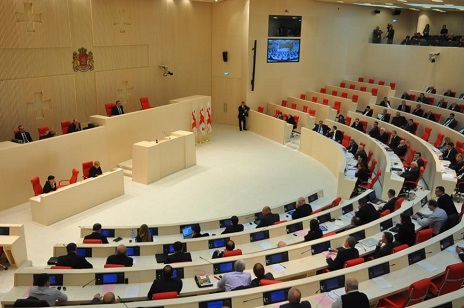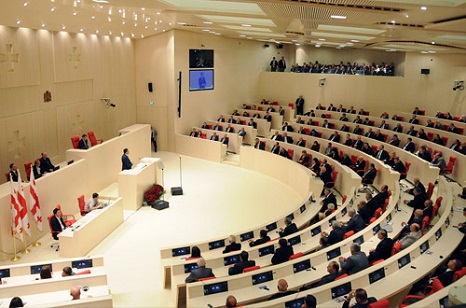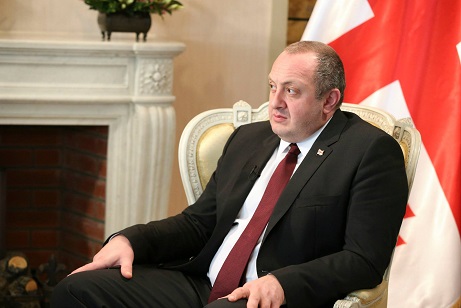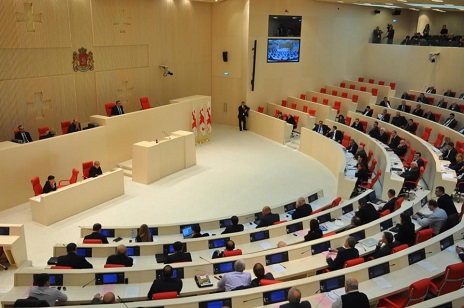Adoption of surveillance law is postponed for four months

UPDATED: 20:57: The Georgian Parliament voted to postpone the adoption of a new law on surveillance for four months. After much debate, lawmakers decided to discuss the final version of the law in February instead of April, after 65 MPs voted in favour while 31 voted against.
EARLIER: 14:18: The draft law is set to be discussed in Parliament this afternoon, during which a vote will take place. However debate is continuing over who will have ‘key’ or direct access to the surveillance and lawmakers do not believe the draft law will be approved this afternoon.
One version of the draft law, proposed by non-governmental organisations (NGOs), foresaw the Interior Ministry only having limited access to telecommunication companies’ server infrastructure.
In this version, law enforcement agencies could only carry out surveillance and obtain requested data from telecommunications service providers only after they obtained a court order that authorised eavesdropping.
This meant that the key to surveillance would be in the hands of telecommunication companies and the court. NGOs believed this would deter authorities from conducting illegal surveillance.
The Government strongly disagreed with this proposal and argued the key should be in the hands of the Interior Ministry. The Government said it should not be necessary to notify telecommunication operators before surveillance took place, as it would increase the risk of leaking sensitive information and undermining operative activities of the law enforcement agencies.
Prime Minister Irakli Garibashvili opposed the alternative version of the draft law, and said this method could possibly risk state security.
"They’re talking that the so-called key should be in the hands of mobile operators, who say they do not want total possession [of the key]. On the other hand, I personally oppose the idea, that the inclusion mechanism is in the hand of mobile operators and the court,” Garibashvili said.
"Our mobile operators are owned by foreign companies and none of the countries, where state interests are being protected, has this type of arrangement. A mobile operator can only handle this issue if security standards are protected there. This is not the case here and the state cannot trust the safety of our country and citizens to foreign companies,” the PM noted.
"In addition, law enforcement agencies have complicated relations with the court and in many cases they have contradictions with the court because even in strictly justified cases they have difficulties receiving permits [for surveillance] therefore, by my assessment, this will lead to a complete collapse and the system will be paralysed,” he said.
In order for the draft law to be approved, 76 Parliament Members must vote in favour of the law change. At this afternoon’s session it is believed the draft version will not gain enough support and in this case, Parliament is expected to postpone approval of the draft surveillance law for six months.
Parliament Speaker David Usupashvili expressed his dissatisfaction towards postponement of the draft law. He noted more work and steps forward were needed in order to finish the job.
"This issue is very important. Ninety percent of it has already been done, which is the result of cooperation between the Government, Parliament, the non-governmental sector, the Interior Ministry, Diplomatic Missions and foreign experts. I want to address everyone to refrain from making emotional and irrational statements so that the achieved result would not be wasted in vain and remaining issues are brought to the end,” he announced.
"It is really bad that the job has not been finished within the timeframe defined by Parliament. Of course I am dissatisfied that the issues, which should have been processed by November, have not been processed [and] a consensus has not been achieved,” Usupashvili noted.
 Tweet
Tweet  Share
Share









